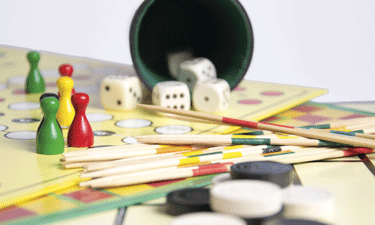 Imagine a world without access to basic social activities — one where you may feel isolated or heavily scrutinized by the “typical” folks around you. This is the world many individuals with physical or mental disabilities feel they inhabit, as they search for ways to comfortably socialize, relax and recreate. Park and recreation agencies are in an ideal position to bridge the gap between special-needs and typical populations by hosting events or developing affordable, inclusive programming. At Bennett Recreation Center, part of Howell Area Parks and Recreation Authority in Howell, Michigan, programmers recently launched monthly Special Needs Sundays, crafted especially for special-needs individuals.
Imagine a world without access to basic social activities — one where you may feel isolated or heavily scrutinized by the “typical” folks around you. This is the world many individuals with physical or mental disabilities feel they inhabit, as they search for ways to comfortably socialize, relax and recreate. Park and recreation agencies are in an ideal position to bridge the gap between special-needs and typical populations by hosting events or developing affordable, inclusive programming. At Bennett Recreation Center, part of Howell Area Parks and Recreation Authority in Howell, Michigan, programmers recently launched monthly Special Needs Sundays, crafted especially for special-needs individuals.
An Outside Plea
“Our consumers have no activities geared toward their disabilities and [are working with] a limited income,” says Lisa Patterson, an administrative supervisor with Adult Learning Systems who works in the Lower Michigan area. “There’s nothing for them to do in Livingston County…many surrounding counties have lots of [special-needs] programming, but Livingston does not,” she continues, painting a bleak picture of the social lives of the individuals she works with at Briarwood Home, a group living facility for people with disabilities. Patterson would attempt to take some of her charges to area parades, festivals and other public activities, but “I would see a lot of the community looking at my consumers with a second glance, not understanding them…We want to get them out and acclimated in the community at large.”
Patterson began to reach out to area recreation centers, desperate to find an ally who would be interested in developing activities for Briarwood residents. “I called around to all the recreation centers and finally got hold of Tracey [Pasfield], who is fabulous,” Patterson says. “I told her my concerns and that I was wondering why we don’t have this type of programming. I asked if she could help me, and she did.”
The enrichment and special events coordinator at Bennett since April 2014, Pasfield was eager to hear Patterson’s proposals. “[Lisa] contacted me and was pretty adamant that special-needs people of our community need everyday, regular activities to be a part of, to give them a sense of normalcy, and feel that they’re part of the community,” Pasfield says. “We came up with the idea of starting [Special Needs Sundays] once a month, with a theme.”
In October 2014, Pasfield held the first Special Needs Sunday at Bennett — a karaoke/costume party for Halloween. “November was a bingo theme, Santa’s secret shop was December and January’s event is a pajama party and movie night,” Pasfield explains. All events are offered at low cost, typically $3 for special-needs participants and $1 for their caregiver. “I’ve become very aware of the monetary issues that these folks can have,” Pasfield continues. “[Lisa] encourages them to learn to budget and to pay for the activity…We’re working together to keep it low-cost, effective, fun and worry-free. Just something to come and enjoy.”
Inviting Ideas
Perhaps the most remarkable aspect of Special Needs Sundays is the way in which Pasfield and Patterson developed the initial months of programming. “We brainstormed with the participants,” Pasfield says. Those individuals who would be the beneficiaries of Special Needs Sundays programming had a direct influence in what activities would be offered, creating an immediate sense of inclusivity and ownership. One woman, whom Pasfield describes as “adamant,” pressed for a 1950s “sock-hop”-themed event. “We’ll be doing that in March,” she says, audibly bemused.
This is exactly the sort of situation Patterson hoped would materialize after her months of lobbying various area recreation centers — one where her consumers have input regarding the activities and can experience “typical” recreation in a comfortable setting. And, for both Patterson and Pasfield, this is just the beginning. Both women envision an evolution of the local community, where special-needs populations, their caregivers and neighbors feel comfortable living and playing together. “I’d love to see [special-needs and typical people] do activities together,” Patterson says. “They’re people too — [there’s no reason to] feel threatened or scared by them.”
Samantha Bartram is the Associate Editor of Parks & Recreation magazine.

